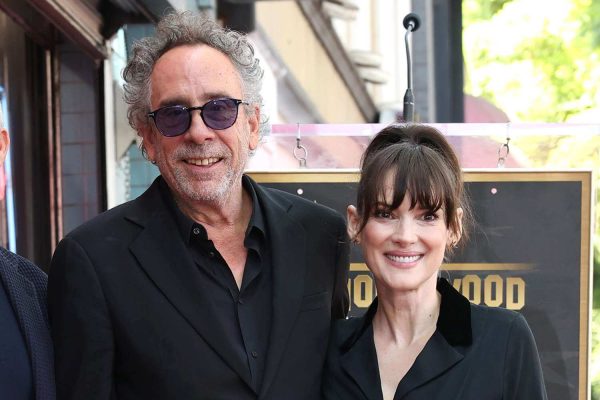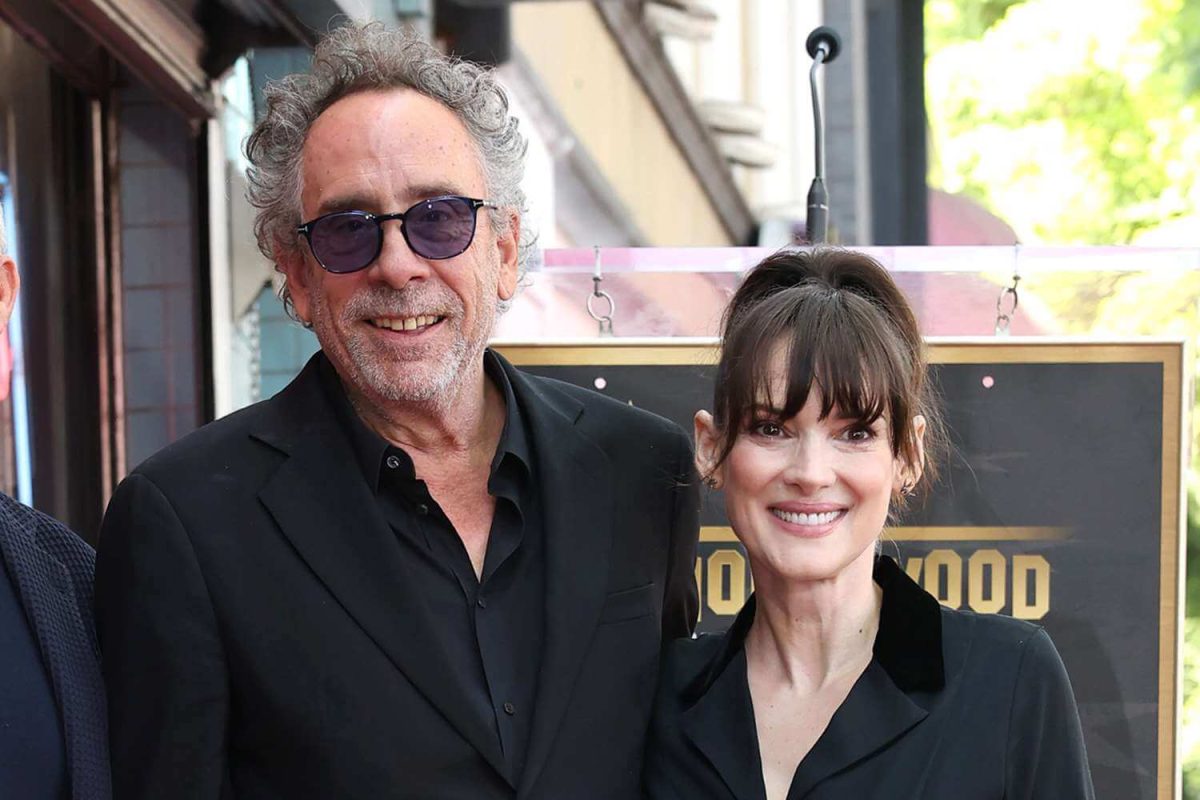World News
Winona Ryder’s Journey: How Tim Burton Helped Her Embrace the Power of Being ‘Weird’
1. Winona Ryder’s Early Struggles with Identity
Winona Ryder, one of Hollywood’s most beloved actresses, has long been celebrated for her unique charm and ability to bring complex, offbeat characters to life. However, her rise to stardom wasn’t without its challenges. In her early years, Ryder struggled with feeling like an outsider in the entertainment industry. Known for her unconventional look and quirky persona, she often felt out of place in a world that tended to prioritize traditional beauty and mainstream appeal. Growing up in a small town with artistic parents, Ryder’s distinctive style and “weird” sensibilities set her apart, but it wasn’t always easy for her to embrace her differences.
At a time when most young actresses were trying to fit into a conventional mold, Ryder found herself gravitating toward more eccentric roles. While this earned her acclaim in certain circles, it also made her feel disconnected from the rest of Hollywood. The pressure to conform to industry standards weighed heavily on her, and for a period, Ryder felt unsure of where she truly belonged in a business that often demanded homogeneity.

2. Tim Burton’s Influence: A Creative Partnership
It was during this period of uncertainty that director Tim Burton entered Winona Ryder’s life and changed the trajectory of her career. Burton, known for his distinctively dark, whimsical, and often “weird” style, saw something special in Ryder. He cast her in one of his early masterpieces, Beetlejuice (1988), where she played Lydia Deetz, a goth teenager with a fascination for the macabre. The film was not only a breakout role for Ryder but also a turning point in her career, as it marked the beginning of a long-lasting creative partnership with Burton.
For Ryder, working with Burton was like finding a creative home. She felt understood in ways she hadn’t before, and Burton encouraged her to fully embrace the parts of herself that she had once tried to suppress. In many ways, Burton and Ryder were kindred spirits—both thrived in the unconventional and shared an affinity for quirky, outsider characters. Through this collaboration, Ryder learned that her uniqueness was not something to be ashamed of but rather a strength to be celebrated. The success of Beetlejuice cemented their bond, and the pair went on to work together in several other films, including Edward Scissorhands (1990), where Ryder starred opposite Johnny Depp.
3. Embracing ‘Weird’ as a Strength
With Tim Burton’s guidance and support, Winona Ryder began to see her eccentricities not as obstacles but as powerful tools for her craft. The roles that once made her feel out of place were now the very ones that catapulted her into stardom. Films like Heathers (1989), Girl, Interrupted (1999), and Edward Scissorhands allowed Ryder to tap into her unique identity, portraying characters who were often outsiders but resonated deeply with audiences. Her ability to channel vulnerability, strength, and peculiarity made her a beloved figure among fans who saw a reflection of themselves in her characters.
Ryder’s willingness to embrace her “weird” side not only shaped her acting career but also redefined how women could be portrayed in Hollywood. At a time when many actresses were still confined to roles that emphasized traditional femininity, Ryder paved the way for more nuanced, multi-dimensional female characters. By owning her unconventional identity, she inspired a generation of women and young actors to embrace their individuality, challenging the norms of beauty and success in the entertainment industry.

4. The Cultural Impact of Winona Ryder’s “Weirdness”
Winona Ryder’s embrace of the “weird girl” persona had a profound impact not only on her career but also on pop culture at large. She became an icon for those who felt they didn’t fit into mainstream society, especially young people who were grappling with their own feelings of being outsiders. Ryder’s characters, whether it was the gothic Lydia in Beetlejuice or the troubled but resilient Susanna in Girl, Interrupted, spoke to those who had felt marginalized, misunderstood, or different.
Ryder’s influence extended beyond her acting roles, as her personal style and public persona also resonated with fans. She became a symbol of nonconformity, with her signature grunge look, dark eyeliner, and refusal to follow the fashion norms of her time. The ’90s, a decade that celebrated alternative culture and individuality, was in many ways defined by actresses like Ryder who challenged the status quo. By embracing her “weirdness,” Ryder showed that there was beauty and strength in being different, helping to shift the cultural narrative around what it meant to be successful, feminine, and powerful.
5. Winona Ryder’s Legacy and Continued Influence
Decades after her rise to fame, Winona Ryder’s influence continues to be felt in Hollywood and beyond. She has re-emerged as a force to be reckoned with in recent years, particularly with her role in the hit Netflix series Stranger Things, where she portrays Joyce Byers, a fiercely protective mother navigating the supernatural dangers of Hawkins. In many ways, Ryder’s return to the spotlight has reminded audiences of her enduring appeal and the timelessness of her characters.
Ryder’s legacy is one of embracing individuality and staying true to oneself, even in the face of pressure to conform. Her work with Tim Burton, in particular, is often credited as helping her unlock the full potential of her creativity and self-acceptance. Today, Ryder’s journey continues to inspire actors, artists, and fans alike, encouraging them to celebrate their quirks, weirdness, and individuality. In a world that still struggles with issues of identity and belonging, Winona Ryder remains a beacon for those who dare to be different.
In conclusion, Winona Ryder’s journey of self-discovery, largely influenced by her collaboration with Tim Burton, has left a lasting impact on Hollywood and popular culture. By learning to embrace her “weird” side, she redefined what it means to be a successful actress in an industry that often prizes conformity. Her legacy continues to inspire countless individuals to be unapologetically themselves, proving that there is power in embracing the qualities that make us unique.
From blacktrendtees

